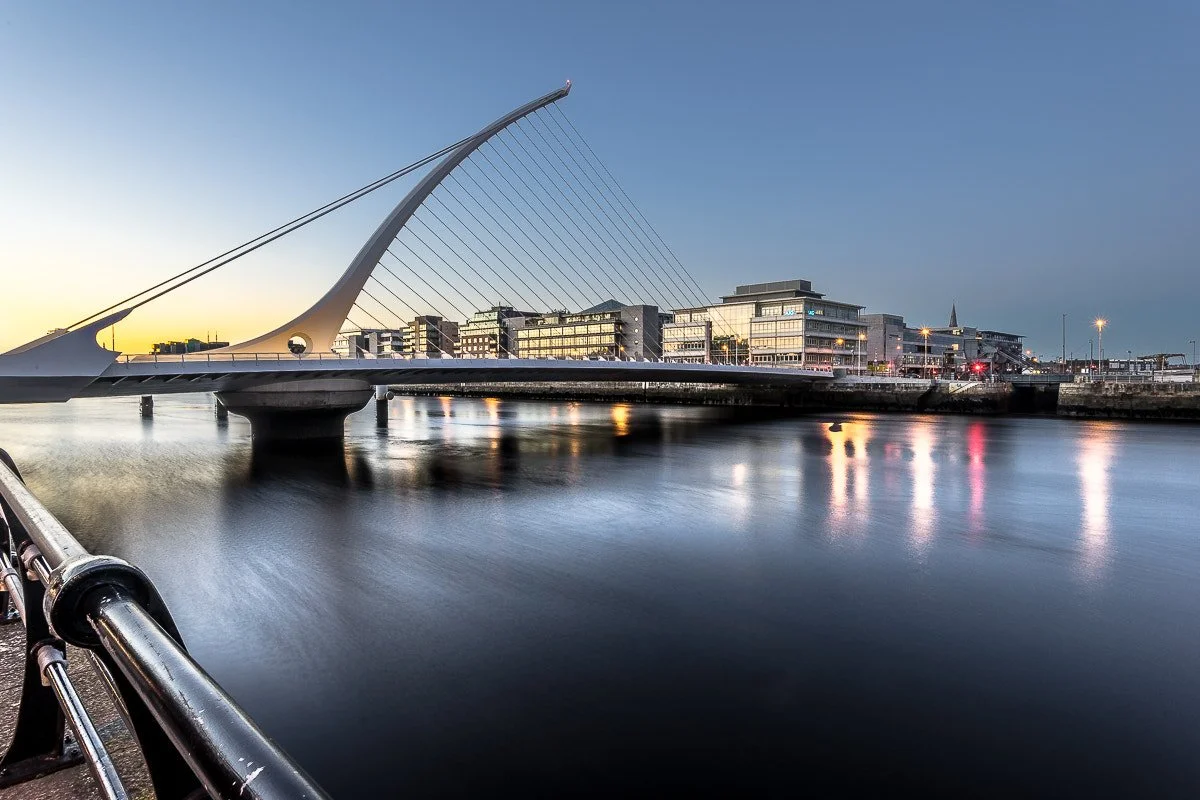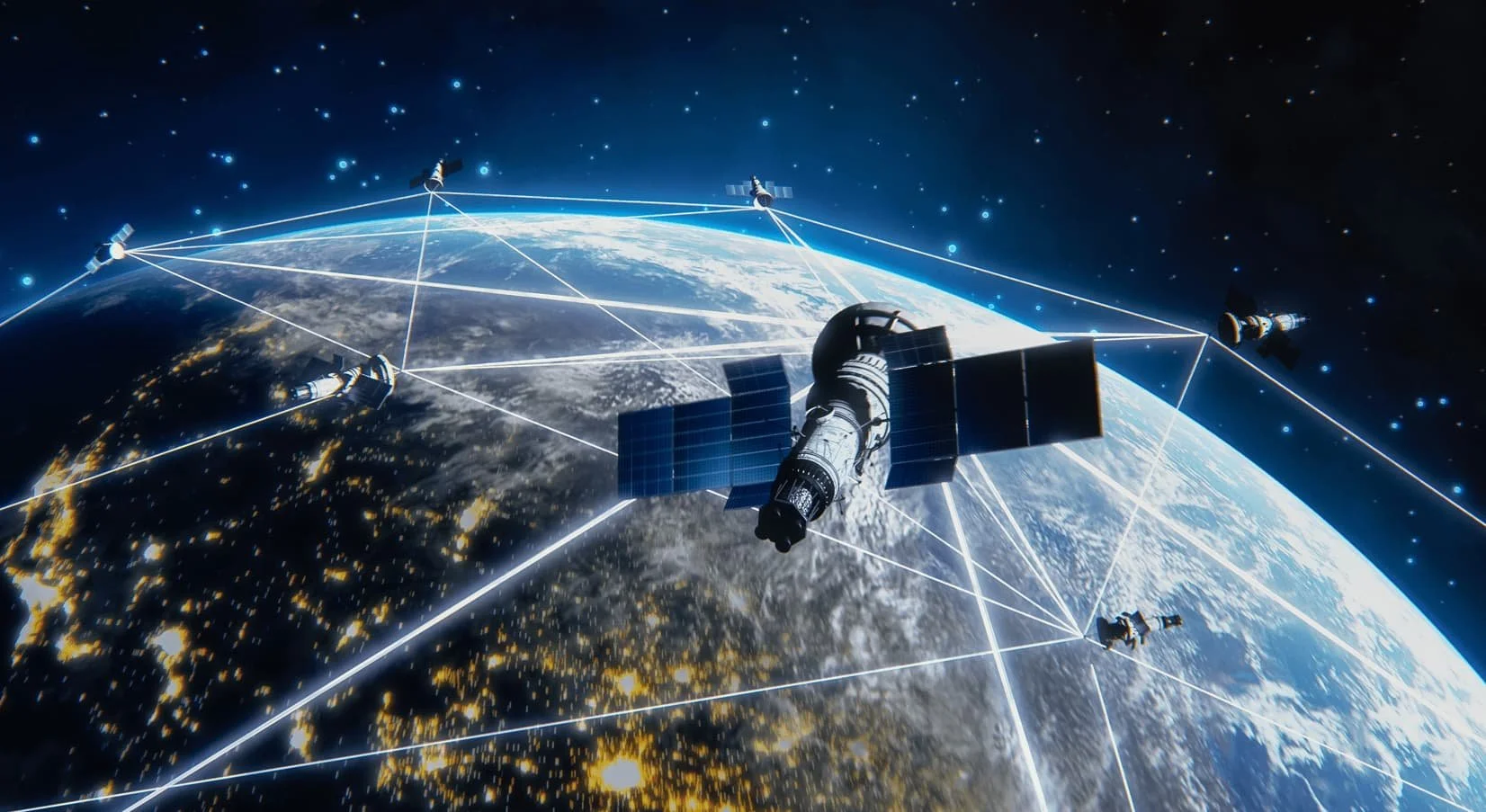Radical & Brave: Continuing Ireland’s Success
This is Part 2 of Andrew’s perspective on Ireland’s strengths, challenges and opportunities. If you haven’t already, we recommend starting with Part 1 here
The Cliffs of Moher on Ireland’s West Coast. Image: Britannica
The Next Decade
After decades of outgrowing much of its European neighbours, Ireland has better economic foundations to build upon than ever. But the country’s trajectory over the next decade presents a complex mix of opportunities and challenges:
The knowledge economy continues to expand, with Dublin cementing its position as a European tech hub with robust growth in both the digital economy and life sciences sectors, green technology and renewable energy infrastructure are expanding, especially offshore wind, and the relocation of financial services post-Brexit continues.
The Samuel Beckett Bridge in Dublin. Image: Wikipedia
However, the nation faces mounting pressure to diversify beyond its current FDI-dependent model, particularly as global minimum tax reforms challenge its traditional competitive advantages. The persistent housing crisis remains a significant economic and social constraint, accompanied by infrastructure capacity issues, especially in Dublin, and growing cost of living pressures. Regional development, focusing on Limerick, Galway, and Cork, has become increasingly crucial, while energy security and grid capacity present ongoing challenges. Ireland's traditional neutrality stance may face increasing scrutiny as EU NATO countries boost defence spending significantly in response to Russian security concerns and a US step back.
This evolving landscape suggests a period of significant transformation in the coming years as Ireland adapts to new global realities while leveraging its established strengths in technology and innovation.
Building Global Technology Leaders Out of Ireland
A key driver for Ireland’s continued success will be leveraging its exceptionally well educated talent pool and close ties with both Europe and the US to build global technology companies.
Stripe
Though Stripe was founded and is headquartered in San Francisco, the Limerick-born Collison brothers have set an inspiring example for other Irish founders and remain deeply connected to Ireland's tech scene. They've made significant investments in Irish startups and regularly advocate for Ireland's tech ecosystem. Both John and Patrick serve as influential voices on policy and education.
John and Patrick Collison. Image: Levon Biss and Ethan Pines for Forbes
In an interview with the Currency last year, John reflected on Ireland’s success to date but suggested now is not the time to sit back.
“And so, I guess the general worry I have is, is there some complacency that we need to be quite paranoid about? Lots of our successes came out of quite radical ideas. TK Whitaker’s programmes were radical for the time. The EU has always been a set of quite radical ideas. We all now take it for granted, and there are nice blue signs on the roads. But it was a collection of pretty radical ideas for its time. ”
As John astutely puts it, we need a healthy paranoia and a deep fear of complacency. Like any startup, we need radical and bold ideas, married with execution and an appreciation that not all ideas will work - which is part of the course.
Mbryonics
In an unassuming corner of Ireland, another bunch of siblings are working on their radical and bold idea, quietly building the laser backbone of space connectivity. John, Ruth and David Mackey are the co-founders of Mbryonics, developing some of the world’s most advanced optical systems to enable the internet in space.
Behind the glass below are many engineers and researchers designing, building and architecting the new data rails of space. Imagine a world where data travels through light in space. Imagine leaving the subsea cable world in the 20th century where it belongs. Imagine next-generation data centres in space harnessing the power of the sun to run the most complex computations instantly, only for it to travel across a laser mesh network covering every part of the globe made up of hundreds of thousands of satellites and directly to your device. This is a world that Mbryonics is building for.
Source: Mbryonics Shannon Facility
The scale and ambition of this world are beyond vast and would drive not only Ireland, but Europe forward. Excuse the pun, but this space endeavour is a big bold moonshot. This is a key example of Irish reinvention and European ambition. The west of Ireland, once a home of agriculture could now be home to an industry building the future of space and connectivity.
Towards 2050
Over the next two decades, Ireland is poised for significant economic and social transformation. The country is expected to emerge as a leading European renewable energy exporter, particularly through its wind power capabilities, while simultaneously fostering the growth of new large-scale indigenous multinational companies. This economic evolution will likely be characterised by deeper integration with EU digital and financial markets, alongside the expansion of circular economy initiatives and continued growth in biotechnology and life sciences sectors.
The social fabric of Ireland is set to undergo substantial changes, driven by current migration patterns leading to an increasingly diverse population and a declining birth rate, while an ageing demographic will necessitate innovative healthcare solutions. Urbanisation pressures will extend beyond Dublin, prompting the need for comprehensive infrastructure development. This will be addressed through the completion of major transport projects, the maturation of renewable energy infrastructure, and the success of regional development initiatives, collectively supporting a more balanced and sustainable national growth pattern.
Vision for Ireland’s Future
Ireland's future trajectory suggests a continued evolution toward a more diversified, sustainable, and regionally balanced economy. Success will depend on effectively addressing current challenges while capitalising on emerging opportunities in technology and sustainability. The country's role in European sovereignty and global competitiveness is likely to grow, particularly in the digital economy, green technology, and financial services sectors.
The key to realising this positive future lies in addressing fundamental challenges around housing, infrastructure, and economic diversity while maintaining the advantages that have driven Ireland to where it is today. Radical ideas and bold ambition driving strategic investment in education, infrastructure, and innovation will be vital for securing Ireland's position as a leading knowledge economy in the decades ahead.
The Irish are deeply proud of our little island on the outskirts of Western Europe and also proud Europeans. We want to believe in a bold and ambitious future for both Ireland and Europe. Irish people should aspire to greatness for themselves, their country and the role Europe plays in the world. Ireland should see the highest standards of living in the world as table stakes for the future - given the cards that we now hold.
Policy, when both radical and brave, has the power to chart new directions for nations. I firmly believe that evidence-driven, innovative policymaking holds the key to addressing Ireland's most pressing challenges.
Image: Ireland.ie
Yet Ireland's strength is inextricably linked to Europe's - neither can truly thrive without the other. Today, we face a rapidly transforming global landscape: an assertive and increasingly unpredictable United States pushing the boundaries of productivity and innovation, while Russia and China pursue territorial ambitions, all driven by humanity's most dangerous motivation - the quest for legacy by Machiavellian men.
The new world is here, the critical question before us is this: Can Europe shed its bureaucratic shackles, rediscover its unity, and embrace the bold vision and resilience that inspired its founding - or will we find ourselves relegated to the margins of tomorrow's world order?
In the coming months, we will visit Ireland to film one of the first episodes of the Grand Tour – meeting some of the technical leaders behind Ireland’s most ambitious companies and advanced engineering projects to get a glimpse of Ireland’s future. If you have any suggestions or comments, please get in touch!





